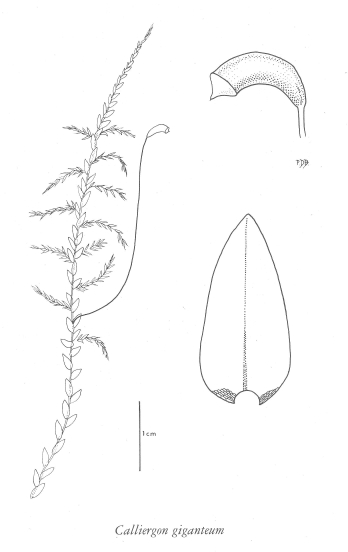E-Flora BC: Electronic Atlas of the Flora of British Columbia
Calliergon giganteum (Schimp.) Kindb.
giant water-moss (giant calliergon moss) Amblystegiaceae Species Account Author: Wilf Schofield Extracted from Some Common Mosses of British Columbia Introduction to the Bryophytes of BC
|
||||||||||||||
